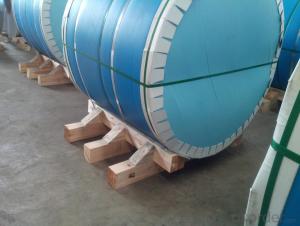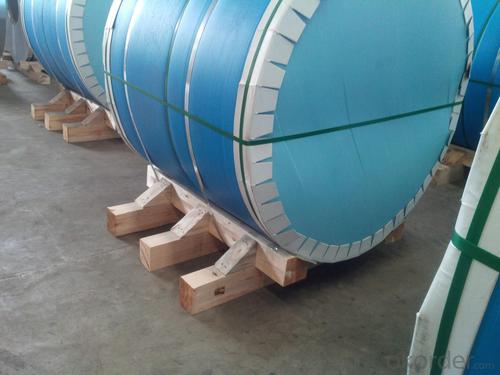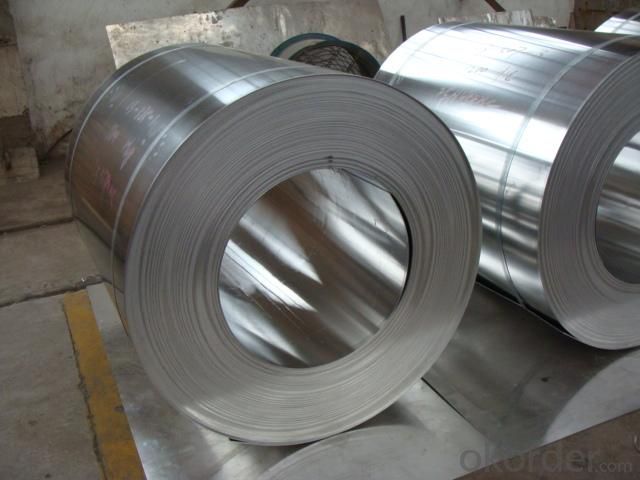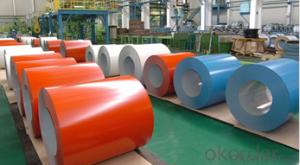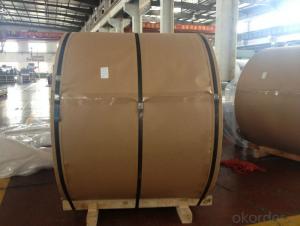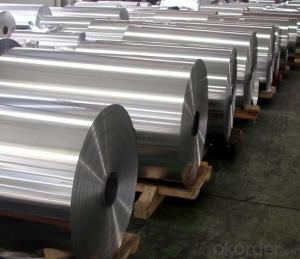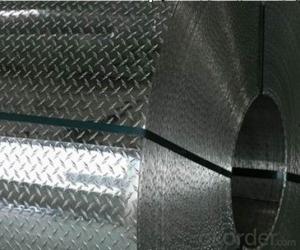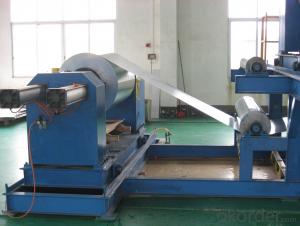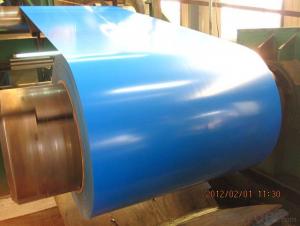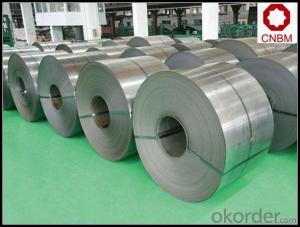1050 3003 Aluminum Coil 5052 Alloy Aluminium Coil
- Loading Port:
- Shanghai
- Payment Terms:
- TT OR LC
- Min Order Qty:
- 3 m.t.
- Supply Capability:
- 5000 m.t./month
OKorder Service Pledge
Quality Product, Order Online Tracking, Timely Delivery
OKorder Financial Service
Credit Rating, Credit Services, Credit Purchasing
You Might Also Like
Specification
Grade:
7000 Series,1000 Series
Surface Treatment:
Coated,Brushed,Enameled Wire,Mill Finish
Shape:
Angle,Flat,Rectangular
Temper:
T3-T8,Soft,T351-T851
Application:
Decorations,Transportation Tools,Kitchen Use,Insulation Material
Thickness:
0.05-4.0mm
Width:
900--1500mm
Outer Diameter:
450-600
Net Weight (kg):
2.5 ton
Packaging:
Wooden pallets
1050 3003 Aluminum Cost Coils Alloy Aluminium Coil
Packaging & Delivery
Product Specification | |
Grade | 1000 Series: 1050 1060 1100 3000 Series: 3003 3004 3105 5000 Series: 5052 5605,5083 6000 Series: 6061 6063 8000 Series: 8011 8021 8079 |
Thickness | 0.20-8.00mm |
Width | 2400mm max. |
Grade | 1000,3000,5000,6000,8000series |
Coil ID | 75mm, 150mm, 200mm, 300mm, 400mm, 508mm or negotiable |
Coil weight | 1000-5000kgs |
Coil OD | 1700mm max. |
Temper | O, H12, H14, H16, H111, H22 ,H24, H26, H28,T4, T6,etc. |
| Temper | |
| F | processing state |
| H | strain hardening state |
| O | annealing |
| T | heat treatment state |
| H112 | pure state of strain hardening, adjustment has been made to degree of strain hardening and annealing |
| T4 | solid solution treatment and natural efficiency to achieve sufficient stability condition |
| T5 | artificial aging condition of the reentry after high temperature thermal cooling |
| T6 | artificial aging state after solid solution treatment |
Chemical Composition | |||||||||
| Grade | Si | Fe | Cu | Mn | Mg | Cr | Ni | Zn | Al |
| 1050 | 0.25 | 0.4 | 0.05 | 0.05 | 0.05 | - | - | 0.05 | 99.5 |
| 1060 | 0.25 | 0.35 | 0.05 | 0.03 | 0.03 | - | - | 0.05 | 99.6 |
| 1070 | 0.2 | 0.25 | 0.04 | 0.03 | 0.03 | - | - | 0.04 | 99.7 |
| 1100 | Si+Fe:0.95 | 0.05-0.2 | 0.05 | - | - | 0.1 | - | 99 | |
| 1200 | Si+Fe:1.00 | 0.05 | 0.05 | - | - | 0.1 | 0.05 | 99 | |
| 1235 | Si+Fe:0.65 | 0.05 | 0.05 | 0.05 | - | 0.1 | 0.06 | 99.35 | |
| 3003 | 0.6 | 0.7 | 0.05-0.2 | 1.0-1.5 | - | - | - | 0.1 | remains |
| 3004 | 0.3 | 0.7 | 0.25 | 1.0-1.5 | 0.8-1.3 | - | - | 0.25 | remains |
| 3005 | 0.6 | 0.7 | 0.25 | 1.0-1.5 | 0.20-0.6 | 0.1 | - | 0.25 | remains |
| 3105 | 0.6 | 0.7 | 0.3 | 0.30-0.8 | 0.20-0.8 | 0.2 | - | 0.4 | remains |
| 3A21 | 0.6 | 0.7 | 0.2 | 1.0-1.6 | 0.05 | - | - | 0.1 | remains |
| 5005 | 0.3 | 0.7 | 0.2 | 0.2 | 0.50-1.1 | 0.1 | - | 0.25 | remains |
| 5052 | 0.25 | 0.4 | 0.1 | 0.1 | 2.2-2.8 | 0.15-0.35 | - | 0.1 | remains |
| 5083 | 0.4 | 0.4 | 0.1 | 0.40-1.0 | 4.0-4.9 | 0.05-0.25 | - | 0.25 | remains |
| 5154 | 0.25 | 0.4 | 0.1 | 0.1 | 3.1-3.9 | 0.15-0.35 | - | 0.2 | remains |
| 5182 | 0.2 | 0.35 | 0.15 | 0.20-0.50 | 4.0-5.0 | 0.1 | - | 0.25 | remains |
| 5251 | 0.4 | 0.5 | 0.15 | 0.1-0.5 | 1.7-2.4 | 0.15 | - | 0.15 | remains |
| 5754 | 0.4 | 0.4 | 0.1 | 0.5 | 2.6-3.6 | 0.3 | - | 0.2 | remains |
| 6061 | 0.40-0.8 | 0.7 | 0.15-0.40 | 0.15 | 0.8-1.2 | 0.04-0.35 | - | 0.25 | remains |
| 6063 | 0.20-0.6 | 0.35 | 0.1 | 0.1 | 0.45-0.9 | 0.1 | - | 0.1 | remains |
| 6082 | 0.7-1.3 | 0.5 | 0.1 | 0.40-1.0 | 0.6-1.2 | 0.25 | - | 0.2 | remains |
| 6A02 | 0.50-1.2 | 0.5 | 0.20-0.6 | Or Cr0.15-0.35 | 0.45-0.9 | - | - | 0.2 | remains |
| 8011 | 0.50-0.9 | 0.6-1.0 | 0.1 | 0.2 | 0.05 | 0.05 | - | 0.1 | remains |
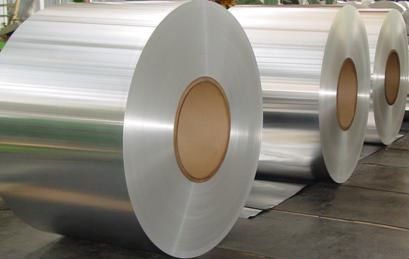
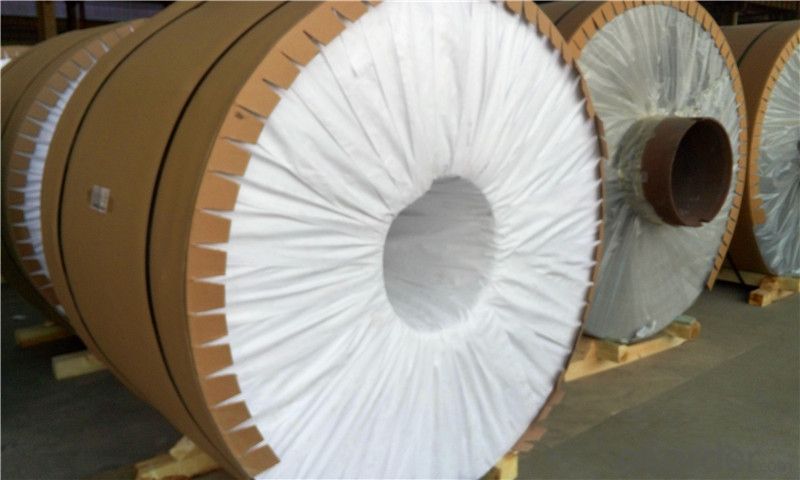
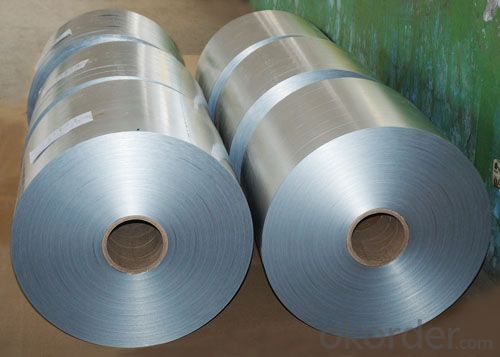
- Q: What are the properties of aluminum coils?
- Aluminum coils possess several key properties that make them highly sought after in various industries. Firstly, aluminum coils have a high strength-to-weight ratio, meaning they are lightweight yet durable. This characteristic makes them ideal for applications where weight reduction is crucial, such as in the aerospace industry. Additionally, aluminum coils exhibit excellent corrosion resistance. The formation of a thin, protective oxide layer on the surface of the metal helps prevent further oxidation, making them suitable for outdoor and marine environments. This corrosion resistance also translates to a longer lifespan, reducing maintenance requirements and costs. Another important property of aluminum coils is their high thermal conductivity. This feature allows for efficient heat transfer and makes them well-suited for applications in the heating, ventilation, and air conditioning (HVAC) industry. Furthermore, aluminum coils have excellent electrical conductivity, making them favorable for use in electrical and electronic components. Aluminum coils are also highly malleable and ductile, allowing for easy shaping and forming. This versatility makes them a popular choice in manufacturing processes, such as in the production of automobile parts, cans, and packaging materials. Lastly, aluminum coils are known for their recyclability. They can be easily melted down and reused without compromising their quality, making them an environmentally friendly choice. This recyclability aspect aligns with the increasing focus on sustainability and reducing the environmental impact of various industries. In summary, aluminum coils possess properties such as high strength-to-weight ratio, corrosion resistance, thermal and electrical conductivity, malleability, and recyclability. These properties make them valuable in numerous applications across various industries.
- Q: Are aluminum coils resistant to oil and grease?
- Aluminum coils typically possess resistance against oil and grease. They exhibit a natural ability to resist corrosion and are not easily influenced by most solvents, including oil and grease. This characteristic renders aluminum coils a suitable option for diverse applications that involve potential contact with oils or greases, such as the automotive and HVAC sectors. Nevertheless, it is crucial to acknowledge that extended exposure to particular aggressive chemicals or high concentrations of oil or grease may gradually result in damage or deterioration of the aluminum coils. Consequently, it is advisable to diligently clean and maintain the coils to guarantee their optimal functioning and durability.
- Q: Can aluminum coils be used in the production of aluminum sandwich panels?
- Yes, aluminum coils can be used in the production of aluminum sandwich panels. Aluminum coils are typically used as the outer layers of the sandwich panel to provide durability, weather resistance, and aesthetic appeal. These coils are usually coated or painted to enhance their performance and appearance. The aluminum coils are then bonded to a core material, such as a non-aluminum material like polyethylene or mineral-filled thermoplastic, to create the sandwich panel structure.
- Q: Do you have an aluminum coil first? Is there an aluminum plate?
- Yes, all aluminium sheets are made of aluminium rolls after slitting. The general process of aluminum plate production is: aluminium ingot - aluminum water - casting roll - aluminum roll ---- aluminum plate [Ji'nan excellent aluminum industry]. Welcome to visit.
- Q: Are there any limitations on the embossing of aluminum coils?
- Yes, there are limitations on the embossing of aluminum coils. The main limitations include the thickness and temper of the aluminum, as well as the complexity and depth of the desired embossing pattern. Additionally, the embossing process may affect the overall flatness and surface quality of the aluminum coil.
- Q: What is the impact resistance of aluminum coils?
- The impact resistance of aluminum coils is generally high. Aluminum has a good strength-to-weight ratio and is known for its ability to withstand impact and deformation without breaking or fracturing easily. This makes aluminum coils suitable for various applications where resistance to impacts and mechanical stress is important, such as in construction, automotive, and aerospace industries.
- Q: This question asks for the methods and practices to keep aluminum coil in good condition and prevent damage or corrosion.
- <p>To maintain aluminum coil, follow these steps: Store the coil in a dry, clean environment to prevent moisture and dirt from causing rust. Keep it away from corrosive substances. Regularly inspect the coil for any signs of damage or corrosion, and address any issues promptly. Handle the coil carefully to avoid scratches or dents. Use protective coverings during transportation to prevent damage. Keep records of the coil's condition and maintenance history to track its performance over time. Regular maintenance will help extend the life of the aluminum coil and maintain its quality.</p>
- Q: What are the factors that determine the price of aluminum coils?
- The price of aluminum coils is influenced by a multitude of factors. One of the primary determinants is the cost of raw materials. The price of aluminum is susceptible to supply and demand, global economic conditions, and production costs. Fluctuations in these factors can directly impact the price of aluminum coils. Another contributor to the price of aluminum coils is the manufacturing process. The cost of converting aluminum into coils encompasses expenses such as labor, energy, and equipment. The intricacy of the manufacturing process and the efficiency of the production line can affect the overall cost, consequently influencing the price of aluminum coils. Market conditions also play a critical role in determining the price of aluminum coils. Factors like market competition, industry trends, and geographic location can impact pricing. For instance, if there is a high demand for aluminum coils in a specific region but a limited supply, the price may increase due to the scarcity of the product. Moreover, transportation and logistics costs contribute to the final price of aluminum coils. The distance between the manufacturing facility and the customer, as well as the mode of transportation, can affect shipping expenses. These costs are typically incorporated into the overall price of the coils. Lastly, government policies and regulations can exert influence over the price of aluminum coils. Tariffs, import taxes, and trade agreements may impact the cost of importing or exporting aluminum coils, thus affecting the final price. In conclusion, the price of aluminum coils is determined by a variety of factors, including the cost of raw materials, manufacturing processes, market conditions, transportation costs, and government policies. Manufacturers and consumers should take these factors into account when analyzing and forecasting the price of aluminum coils.
- Q: What benefits does anodized aluminum offer when compared to regular aluminum coils?
- <p>Anodized aluminum coils offer several advantages over standard ones. They have enhanced corrosion resistance due to the protective oxide layer formed during the anodizing process. This layer also improves wear resistance and increases the coil's durability. Anodized coils can be easily colored, providing a wide range of aesthetic options without affecting the material's performance. Additionally, the anodized surface is more resistant to scratches and can maintain a polished appearance longer. Overall, anodized aluminum coils are more robust, visually appealing, and longer-lasting compared to standard aluminum coils.</p>
- Q: How are aluminum coils used in the production of marine vessels?
- Aluminum coils are extensively used in the production of marine vessels due to their unique properties and advantages. Firstly, aluminum is a lightweight material compared to other metals commonly used in shipbuilding such as steel. This characteristic makes it ideal for constructing marine vessels as it reduces the overall weight of the ship, allowing it to float more easily in water. The use of aluminum coils in the construction process ensures that the vessel remains buoyant without compromising its structural integrity. Secondly, aluminum is highly corrosion-resistant, especially when exposed to saltwater environments. Marine vessels are constantly exposed to water, which can be corrosive and damaging to metal components. By using aluminum coils, shipbuilders can minimize the risk of corrosion and increase the longevity of the vessel. Moreover, aluminum coils offer excellent thermal conductivity. This property is crucial in marine vessels as it helps dissipate heat generated by engines, machinery, and equipment, ensuring that the ship operates efficiently and safely. Additionally, aluminum coils can be easily formed, shaped, and welded, making them highly malleable and adaptable for various shipbuilding requirements. This flexibility allows shipbuilders to create complex and streamlined designs, optimizing the vessel's performance and fuel efficiency. Furthermore, aluminum coils are environmentally friendly as they are 100% recyclable, reducing the carbon footprint associated with marine vessel production. This aspect aligns with the growing demand for sustainable and eco-friendly shipbuilding practices. In conclusion, aluminum coils play a vital role in the production of marine vessels. Their lightweight nature, corrosion resistance, thermal conductivity, malleability, and recyclability make them an ideal choice for shipbuilders. By utilizing aluminum coils, marine vessels can be constructed to be more efficient, durable, and environmentally friendly.
Send your message to us
1050 3003 Aluminum Coil 5052 Alloy Aluminium Coil
- Loading Port:
- Shanghai
- Payment Terms:
- TT OR LC
- Min Order Qty:
- 3 m.t.
- Supply Capability:
- 5000 m.t./month
OKorder Service Pledge
Quality Product, Order Online Tracking, Timely Delivery
OKorder Financial Service
Credit Rating, Credit Services, Credit Purchasing
Similar products
Hot products
Hot Searches
Related keywords
